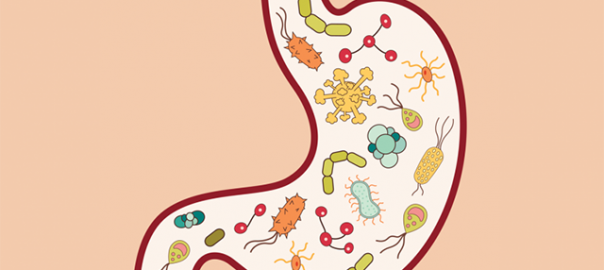The bacteria in your gut make up a very important ecosystem so you need to gut health diet to balance it. Yes! Junk food and high-calorie food have been among the prime causes of Obesity, but a new study presented another key reason behind obesity in kids.
According to a new study published in Obesity Reviews, gut microbe and its interactions with the metabolic organs and immune cells, along with fat tissue is found to play a significant role in childhood obesity.
At Wake Forest Baptist Health, scientists and experts studied the connection between childhood obesity and gut bacteria. The aim of the study was to know whether any early decisions can impact the health of the child. The authors reported that they wish to encourage upcoming research and guide physicians, parents, and healthcare agencies to decrease the onset of obesity.
You will be more surprised to know that it is not only the gut, but the mother’s diet, antibiotic use, health, and exercise level also can pose a risk factor in a kid getting overweight.
For years, the medical community was under the impression that consuming excess calories causes obesity. However, there have been numerous studies conducted to actually confirm the cause. Eventually, they confirmed that gut microbes are not only associated with childhood obesity but also are one of the cause.
Each year, obesity is increasing at a rate of 2.3% among school-aged kids. This number is unacceptably high and is a worrisome situation for the upcoming generation’s health, the study added.
Moreover, the researchers also reviewed the existing studies that include knowing the mechanism through which the gut microbes or immune cells can be passed from mother to the baby during gestation and eventually cause the child to get overweight.
The effect of the mother’s health on infants
The review, further, discussed the effect of the mother’s diet, health, exercise level, birth method (cesarean or natural), antibiotic use, and the method of feeding (breast milk or formula) on the child.
The findings were as follows:
Birth Method: Infants born through cesarean show higher incidences of obesity as compared to infants born naturally.
Feeding Method: Formula-fed babies tend to harbor different gut microbes. This eventually increases the incidences of obesity in children. This is not the case for babies who are breastfed. Breast milk contains oligosaccharides that promote healthy gut bacteria.
Use of antibiotics: The diversity of gut bacteria significantly decreases with the use of antibiotics. Infants receive partial bacteria when mothers are taking antibiotics during pregnancy. This leads to obesity.
Mother’s weight: The gut bacteria are less in infants with mothers dealing with obesity and diabetes.
The compilation of existing research can prove very useful to the nutritionists, doctors, and dieticians when discussing the condition with their patients. This communication can change many things if patients have good knowledge.
The research lastly opined that such a better understanding of the relation of the obesity and gut microbe in both children and the mothers will help scientists to design more therapeutic and preventive strategies to keep a close eye on the increase of childhood obesity.
In this case, we recommend to undergo weight loss surgery which can significantly improve the gut health in adults and children too.
